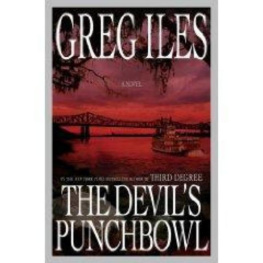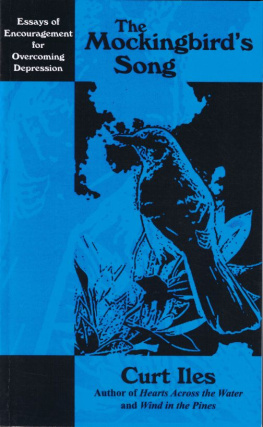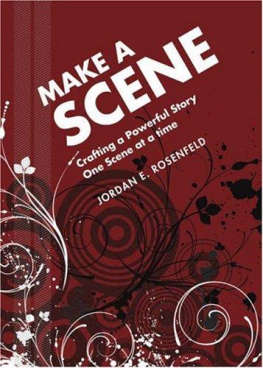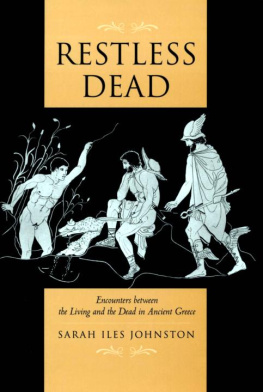
In memory of Silous Marty Kemp
I stopped shooting people six months ago, just after I won the Pulitzer Prize. People were always my gift, but they were wearing me down long before I won the prize. Still, I kept shooting them, in some blind quest that I didnt even know I was on. Its hard to admit that, but the Pulitzer was a different milestone for me than it is for most photographers. You see, my father won it twice. The first time in 1966, for a series in McComb, Mississippi. The second in 1972, for a shot on the Cambodian border. He never really got that one. The prizewinning film was pulled from his camera by American marines on the wrong side of the Mekong River. The camera was all they found. Twenty frames of Tri-X made the sequence of events clear. Shooting his motor-drive Nikon F2 at five frames per second, my dad recorded the brutal execution of a female prisoner by a Khmer Rouge soldier, then captured the face of her executioner as the pistol was turned toward the brave but foolish man pointing the camera at him. I was twelve years old and ten thousand miles away, but that bullet struck me in the heart.
Jonathan Glass was a legend long before that day, but fame is no comfort to a lonely child. I didnt see my father nearly enough when I was young, so following in his footsteps has been one way for me to get to know him. I still carry his battle-scarred Nikon in my bag. Its a dinosaur by todays standards, but I won my Pulitzer with it. Hed probably joke about the sentimentality of my using his old camera, but I know what hed say about my winning the prize: Not bad, for a girl.
And then hed hug me. God, I miss that hug. Like the embrace of a great bear, it swallowed me completely, sheltered me from the world. I havent felt those arms in twenty-eight years, but theyre as familiar as the smell of the sweet olive tree he planted outside my window when I turned eight. I didnt think a tree was much of a birthday present back then, but later, after he was gone, that hypnotic fragrance drifting through my open window at night was like his spirit watching over me. Its been a long time since I slept under that window.
For most photographers, winning the Pulitzer is a triumph of validation, a momentous beginning, the point at which your telephone starts ringing with the job offers of your dreams. For me it was a stopping point. Id already won the Capa Award twice, which is the one that matters to people who know. In 1936, Robert Capa shot the immortal photo of a Spanish soldier at the instant a fatal bullet struck him, and his name is synonymous with bravery under fire. Capa befriended my father as a young man in Europe, shortly after Capa and Cartier-Bresson and two friends founded Magnum Photos. Three years later, in 1954, Capa stepped on a land mine in what was then called French Indochina, and set a tragic precedent that my father, Sean Flynn (Errols reckless son), and about thirty other American photographers would follow in one way or another during the three decades of conflict known to the American public as the Vietnam War. But the public doesnt know or care about the Capa Award. Its the Pulitzer they know, and thats what makes the winners marketable.
After I won, new assignments poured in. I declined them all. I was thirty-nine years old, unmarried (though not without offers), and Id passed the mental state known as burned out five years before I put that Pulitzer on my shelf. The reason was simple. My job, reduced to its essentials, has been to chronicle deaths grisly passage through the world. Death can be natural, but I see it most often as a manifestation of evil. And like other professionals who see this face of death cops, soldiers, doctors, priests war photographers age more rapidly than normal people. The extra years dont always show, but you feel them in the deep places, in the marrow and the heart. They weigh you down in ways that few outside our small fraternity can understand. I say fraternity, because few women do this job. Its not hard to guess why. As Dickey Chappelle, a woman who photographed combat from World War II to Vietnam, once said: This is no place for the feminine.
And yet it was none of this that finally made me stop. You can walk through a corpse-littered battlefield and come upon an orphaned infant lying atop its dead mother and not feel a fraction of what you will when you lose someone you love. Death has punctuated my life with almost unbearable loss, and I hate it. Death is my mortal enemy. Hubris, perhaps, but I come by that honestly. When my father turned his camera on that murderous Khmer Rouge soldier, he must have known his life was forfeit. He shot the picture anyway. He didnt make it out of Cambodia, but his picture did, and it went a long way toward changing the mind of America about that war. All my life I lived by that example, by my fathers unwritten code. So no one was more shocked than I that, when death crashed into my family yet again, the encounter shattered me.
I limped through seven months of work, had one spasm of creativity that won me the Pulitzer, then collapsed in an airport. I was hospitalized for six days. The doctors called it post-traumatic stress disorder. I asked them if they expected to be paid for that diagnosis. My closest friends -and even my agent told me point-blank that I had to stop working for a while. I agreed. The problem was, I didnt know how. Put me on a beach in Tahiti, and I am framing shots in my mind, probing the eyes of waiters or passersby, looking for the life behind life. Sometimes I think Ive actually become a camera, an instrument for recording reality, that the exquisite machines I carry when I work are but extensions of my mind and eye. For me there is no vacation. If my eyes are open, Im working.
Thankfully, a solution presented itself. Several New York editors had been after me for years to do a book. They all wanted the same one: my war photographs. Backed into a corner by my breakdown, I made a devils bargain. In exchange for letting an editor at Viking do an anthology of my war work, I accepted a double advance: one for that book, and one for the book of my dreams. The book of my dreams has no people in it. No faces, anyway. Not one pair of stunned or haunted eyes. Its working title is Weather.
Weather was what took me to Hong Kong this week. I was there a few months ago to shoot the monsoon as it rolled over one of the most tightly packed cities in the world. I shot Victoria Harbor from the Peak and the Peak from Central, marveling at the different ways rich and poor endured rains so heavy and unrelenting that theyve driven many a roundeye to drunkenness or worse. This time Hong Kong was only a way station to China proper, though I scheduled two days there to round out my portfolio on the city. But on the second day, my entire book project imploded. I had no warning, not one prescient moment. Thats the way the big things happen in your life.
A friend from Reuters had convinced me that I had to visit the Hong Kong Museum of Art, to see some Chinese watercolors. He said the ancient Chinese painters had achieved an almost perfect purity in their images of nature. I know nothing about art, but I figured the paintings were worth a look, if only for some perspective. Boarding the venerable Star Ferry in the late afternoon, I crossed the harbor to the Kowloon side and made my way on foot to the museum. After twenty minutes inside, perspective was the last thing on my mind.
The guard at the entrance was the first signpost, but I misread him completely. As I walked through the door, his lips parted slightly, and the whites of his eyes grew in an expression not unlike lust. I still cause that reaction in men on occasion, but I should have paid more attention. In Hong Kong I am
Next page





